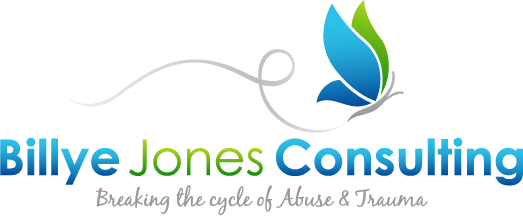I am dedicating this blog to talking about Child Sexual Abuse—but what is it? To some, this might sound like a ridiculous question. But the truth is many people don’t know the answer. When most of us think of Child Sexual Abuse we often think the act must be physical, inappropriate touching. After all, this is the definition with which we are the most familiar.
In fact, we are so familiar with the idea of sexual abuse having a physical form that we fail to protect children from other forms of sexual abuse that are very damaging and detrimental to a child.
Here are some examples of how a child can be sexually abused:
- Being exposed to pornography,
- Having children witness live sex acts of others,
- Watching children in the bathroom or shower, undressing (beyond what is age appropriate),
- Sexual harassment (including street harassment of girls),
- Sexually explicit conversations with children,
- Soliciting children over the Internet,
- Filming children engaging in sexual activity,
- A child performing a sex act on an adult,
- A child performing a sex act on another child, and
- Masturbating in the presence of a child.
Notice that many of the things I mentioned are witnessed, seen, or heard—not physical, inappropriate touching. One of the challenges of our understanding of abuse is that, when we suspect something, our first question to a child is typically “who touched you?” I am aware of many cases in which a child has answered honestly: “nobody touched me,” but they were still being abused! Our questions to children should cover everything on this list. For example: has anyone asked you to take your clothes off, made you watch movies, look at pictures, or contacted you over the internet? These types of questions are better than only asking who touched you.
One of the things many of us fail to understand about sexual abuse is that it can takes days months or years before a perpetrator of abuse will attempt to touch a child. It starts by trying to identify a child who is vulnerable and easily accessible. Once the child is identified, perpetrator starts what’s called the “grooming process,” which is when someone befriends a child and tries to make an emotional connection in order to get the child to do something they want. When you understand the grooming process, you also understand that this is not an easy thing for a stranger to do. It is often people we know—not strangers—that typically groom.
Remember we can all do our part to prevent and end Child Sexual Abuse. So the next time you want to ask a child “who touched you?” remember to ask other questions, like:
- Has someone made you feel uncomfortable?
- Has someone asked you to look at movies or pictures?
- Has someone asked you to remove your clothes?
- Have you ever been followed or watched during times when you needed privacy?
- Is there anyone who makes you feel uncomfortable?
You would be amazed how many more children we can protect if we really understood Child Sexual Abuse better and asked the right questions.


Thanks Billey, you have dedicated your work and skills to a very sensitive issue. I really impressed and appreciated your motivation for the social wellbeing of these children’s. This is a global issues and we must address it through discussions with affectees.
Thank you; good information resources for
thise who are not well inform on what to look for when there are concerns of suspected child sexual abuses. Equally important for teachers and primary care takers, who are likely to have first contact with these children and to be able to detect and identify signs of emotional, physical and sexual abuses, among children. Unfortunately, Evidence based research, indicates that children who are at high risks of sexual abuses are victims of socio economic factors as well, Arguably, their parents are alcohol and substance users, unable to sustain employment, have been involved with the criminal justice system and lack education. I think that in viewing this, perhaps in a theoretical framework, bio/psy/socio approaches, there are valid explanations. Moreover, it is the core of the problems in my view. By saying that, I think we can deter bad habits, through education, jobs skills, this will minimize dependency, and instill efficacy and productivity leading to productive citizens. Let me redirect you the sexual abuse issue. Readers should be mindful that certain individuals are mandated reporters. So Now that you have wrote a piece on child sexual abuse, I want to if you would consider write about physical, and emotional abuses among children. Are the ages varies in different jurisdictions? You are clearly an expert in this field, and I look forward for your next piece and comments, thank you
Thank you for the information. I am fighting this fight with you. My goal is to save our babies. This is very helpful information.
Thank you for reading the blog post and for your thoughtful response. Although physical and emotional abuse are certainly important issues I want to address, the blog will focus on Child Sexual Abuse for now. All forms of child abuse tend to occur together but Child Sexual Abuse receives the least amount of attention. Although I am familiar with the research, experience has taught me you can come from a family where everything is going “right” and still be a victim of Child Sexual Abuse. All children are vulnerable and it is important we all remember that!
Thank you so much for reading the blog! I appreciate your comments!
Thank you so much for reading the blog! I appreciate your comments!
Sometimes the child may be so traumatized by sexual abuse that years pass before he or she is able to understand or talk about what happened. In these cases, adult survivors of sexual abuse may come forward for the first time in their 40s or 50s and divulge the horror of their experiences.
Thank you for your comment and for reading the blog post! I agree many children aren’t able to disclose the abuse for many years, that is why I believe we need to educate adults to pick up on the subtle signs of abuse.